The type of tires you choose for your vehicle can affect how it performs in winter conditions. If you are in the market for winter tires, you may be wondering if you should get narrow or wider tires. Let's take a look to see what the experts recommend.
Narrow tires will perform better in winter conditions due to having a higher surface pressure. In other words, narrow tires will provide more grip and do a better job cutting throw deep snow and slush. If you live in a region where you experience frequent snowfall and icy roads, it's best to get a set of narrow winter tires.
Having the right tires for winter road conditions can make a big difference when driving. In this article, we will take a closer look at why narrow tires are a better choice for winter driving. In addition, we will answer other frequently asked questions about car tires, so read on!
Are Winter Tires More Narrow?
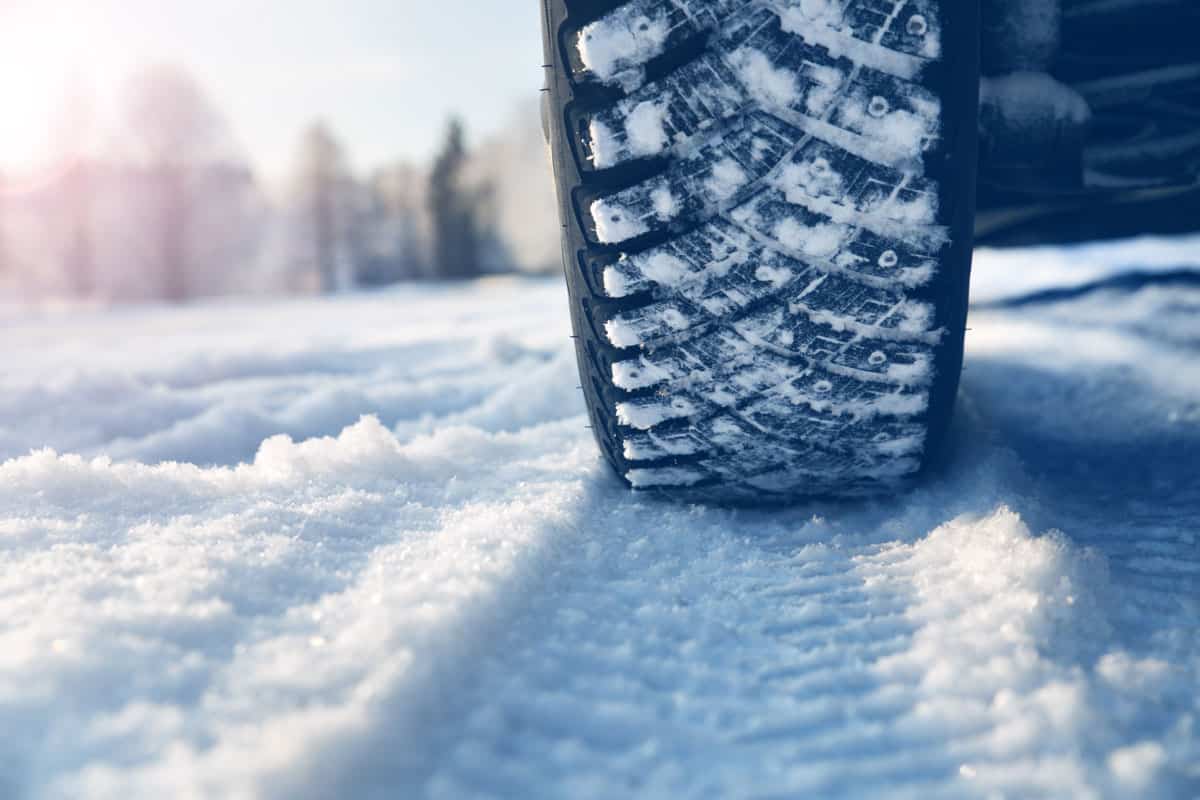
During the winter, roads can become icy, making it difficult to control your vehicle. While you still need to take extra precautions when driving in the winter, having the right tires on your vehicle can help keep you safe.
It can be confusing to figure out what type of tire to use in the winter, as there are many brands, treads, and sizes. For winter driving in particular, it's better to get a narrow winter tire.
Narrower tires have a high surface pressure which does a better job gripping icy surfaces. In addition, if you need to drive through deep snow, the tires will be able to cut through it more easily.
When it comes to choosing a winter tire, make sure you have a tread that can handle the roads you drive on.
For example, if you mainly do highway driving, you probably don't want winter tires that have a lot of studs, as they are noisy and dry roads will wear them down quickly. But if you mainly commute on roads that get snow drifts, then studded winter tires are a good choice.
Your best bet is to speak to a tire specialist so they can show you winter tires that best suit your driving habits.
If you have wider rims, then you may be wondering if you can still get winter tires. Depending on the exact rim size and width, you should be able to find winter tires for your vehicle. However, wider tires serve you better on dry roads, not slippery ones.
If you live in a region such as the midwest where snow and icy roads are a common occurrence, you may want to get a winter set of rims and tires.
What Are The Disadvantages Of Narrow Tires?
While narrow tires do an excellent job providing traction in the winter, they do have their pitfalls. One of the main disadvantages of narrow tires is the decreased handling when taking sharp turns.
When you take a sharp turn, the weight of the vehicle shifts, and narrow tires don't have enough surface area to compensate for the added weight.
As a result, there is a higher chance of a rollover. However, this shouldn't be an issue if you are cautious when taking turns.
Another disadvantage of narrow tires is the lack of comfort when hitting bumps. Narrow tires are thinner and can't absorb the bumps as much as wider tires can. However, narrow tires will have a decrease in road noise and vibrations compared to wider tires at high speeds.
Lastly, narrow tires don't provide the same amount of grip that a wider tire can on dry pavement. At high speeds, your vehicle may not have the traction it needs to travel safely on the road.
What Are The Advantages And Disadvantages Of Wider Tires?
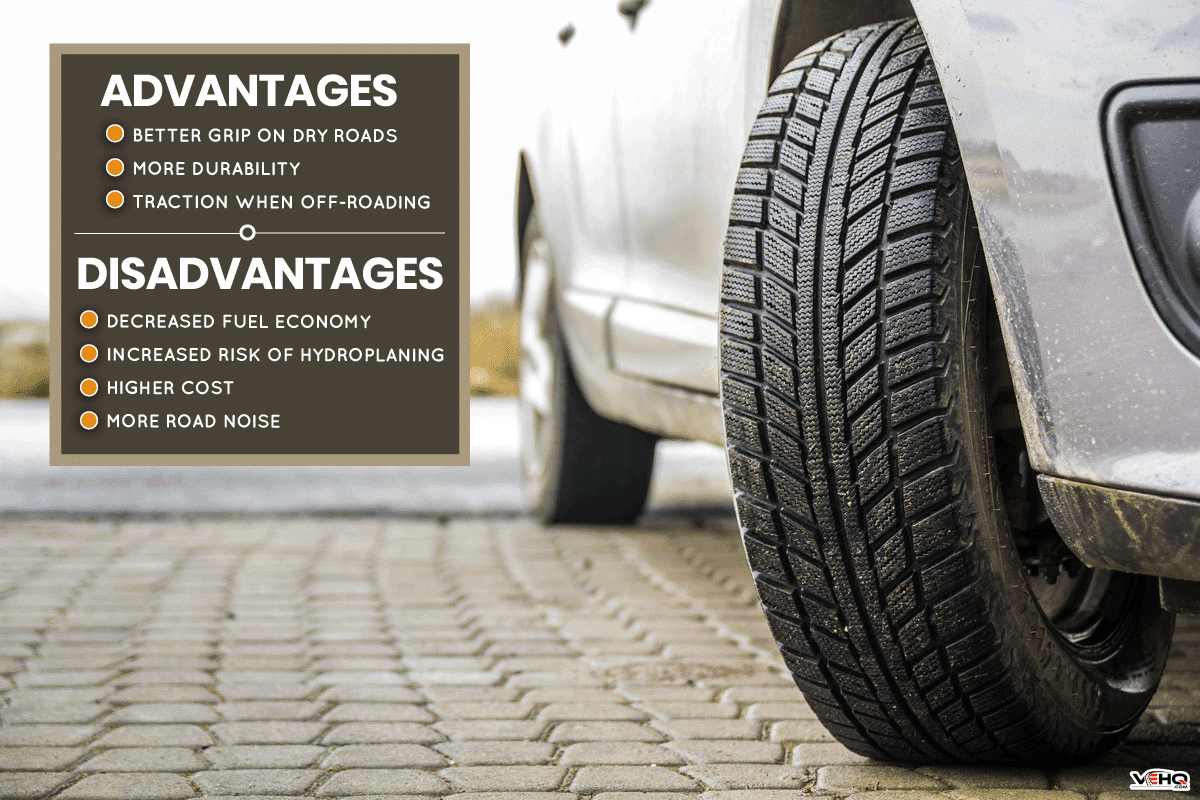
Wider tires have their own advantages and disadvantages that drivers should be aware of. Let's take a look at them below.
Advantages Of Wider Tires
Let's take look at the advantages of wider tires first.
Better Grip On Dry Roads
Dry roads are where wider tires thrive. If you frequently drive on highways or interstates, wider tires will provide better handling at high speeds and corners. Wider tires have a higher contact patch which will also give them more responsive braking at high speeds.
More Durability
Unless it's winter conditions, you will see that the majority of vehicles have wider tires. Wider tires are more durable and won't wear down nearly as fast. Of course, you still need to rotate your tires as directed by your manufacturer, but in general, you will get more miles out of wider tires.
Traction When Off-Roading
If you have seen any off-road vehicles, you will notice they all have wide tires. Back roads will have all kinds of uneven surfaces and terrains that can easily damage narrow tires. Since wider tires have more surface area to gain traction, they are better for off-roading.
Disadvantages Of Wider Tires
As you can see, there are circumstances when wider tires will serve you better than narrow tires, but there are disadvantages to driving with wider tires.
Decreased Fuel Economy
Wider tires are heavier than narrow tires, which means the engine has to work harder to rotate them. As a result, you will see a decrease in your fuel economy.
Increased Risk Of Hydroplaning
Hydroplaning is when water comes between the tire and the road surface. This can be dangerous, as it can cause you to lose control of your vehicle.
Since wider tires do have more surface area, the risk of hydroplaning is higher. When driving in heavy rain or after a storm, be cautious of driving through puddles at high speeds.
Higher Cost
Bigger or wider tires are going to be more expensive versus a set of narrow tires. This simply comes down to the added materials it takes to make wider tires. Also, if you need tires to fit a rim that isn't as common, you may pay more, as there is lower demand.
More Road Noise
While it may not be a dealbreaker for every driver, wider tires will be louder than narrow tires. This is simply due to more rubber making contact with the road.
Should You Get Separate Rims For Winter Tires?
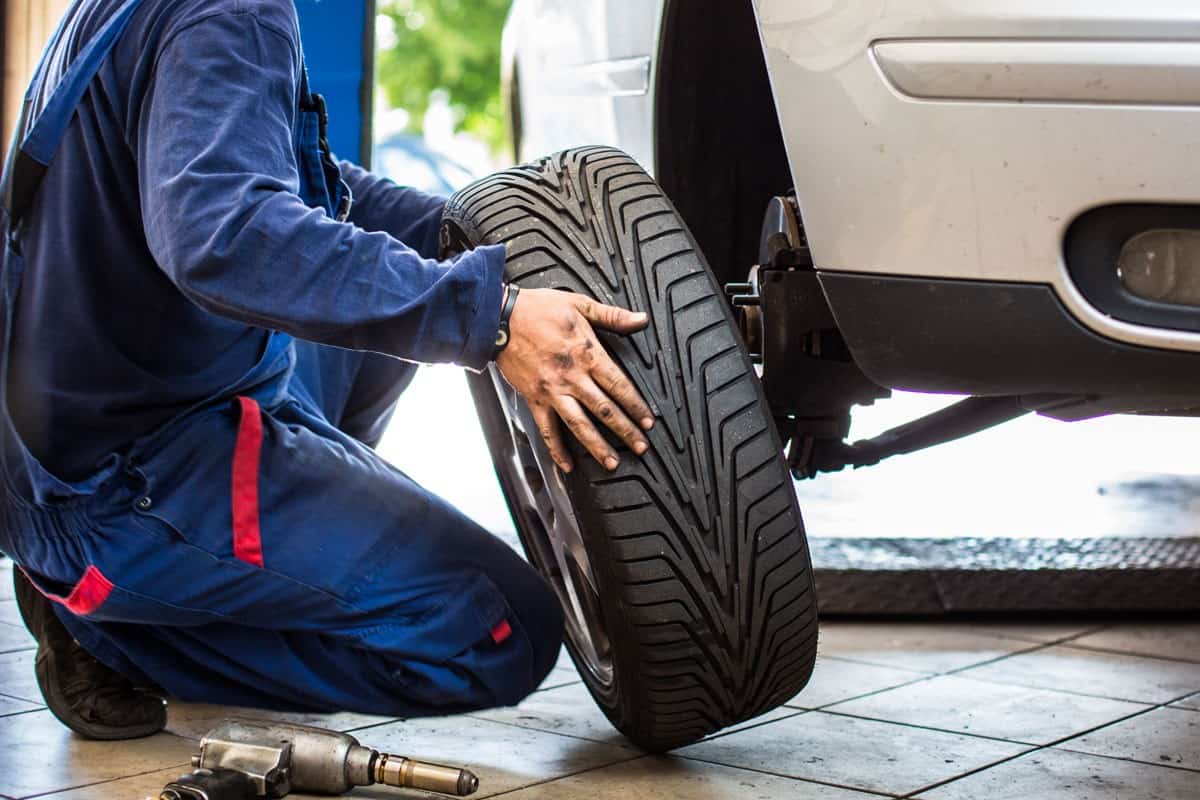
You don't have to get separate rims for winter tires, but there are advantages to doing so.
Cost Savings
Dismounting and mounting costs can add up if you need to do it twice a year. However, if your winter tires are already mounted on a rim, a mechanic can switch them for your summer tires in 5-10 minutes.
You can also put your winter tires on yourself if you feel comfortable and have the right tools. If you don't have the right tools, it's best to leave it to the professionals to ensure the tires are properly mounted.
Protect Your Rims
During the winter, your rims will take on all sorts of abuse. If you want to protect your rims, it's best to get a set of rims that you don't mind getting a bit beat up. Road salt, gravel, and other debris can take a toll on your nice rims.
Better Performance
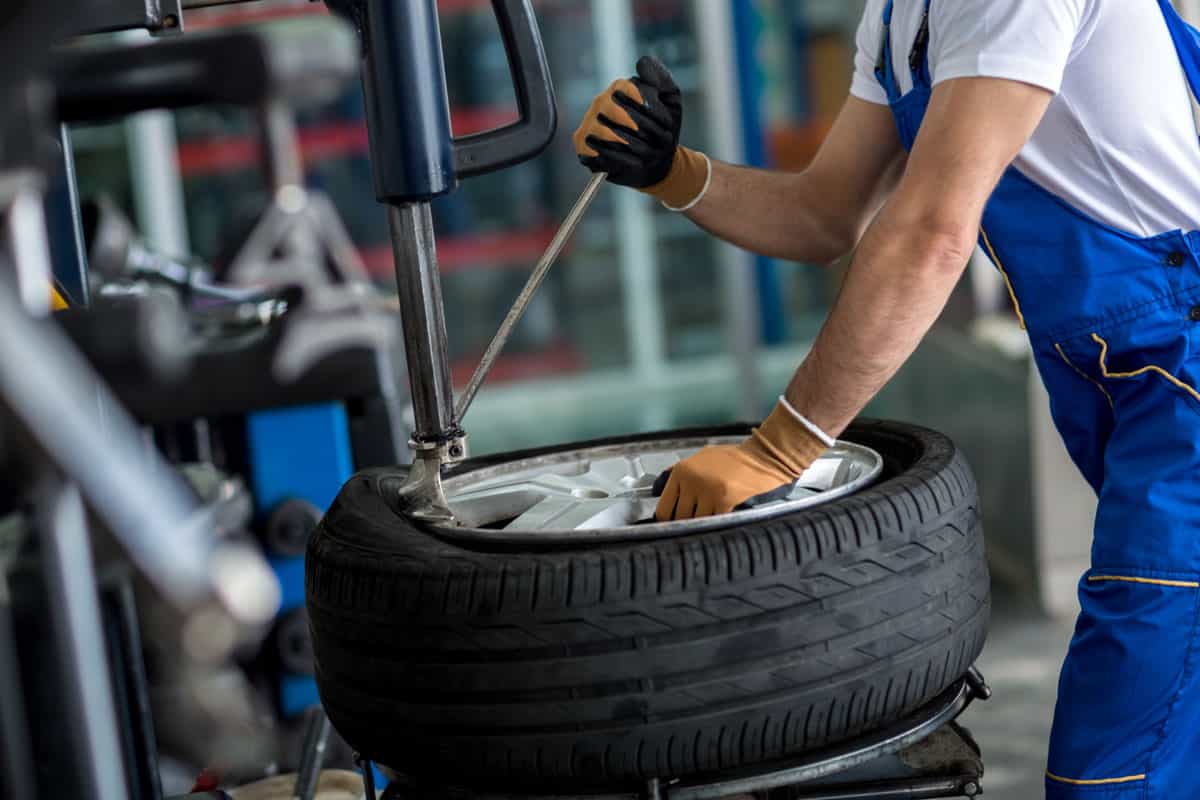
We have explained why narrow tires are a better choice for winter driving conditions. But if you have wider rims, narrow tires aren't going to mount properly. If you want the peace of mind that your car will handle icy roads, then purchasing a set of winter tires and rims is your best bet.
There are several tire shops that offer tire storage for the winter and summer seasons. This is convenient because all you have to do is drive to the tire shop, and they will switch them for you. There is no need for you to find a place to put the tires or load them on and off your vehicle.
How Long Do Winter Tires Last?
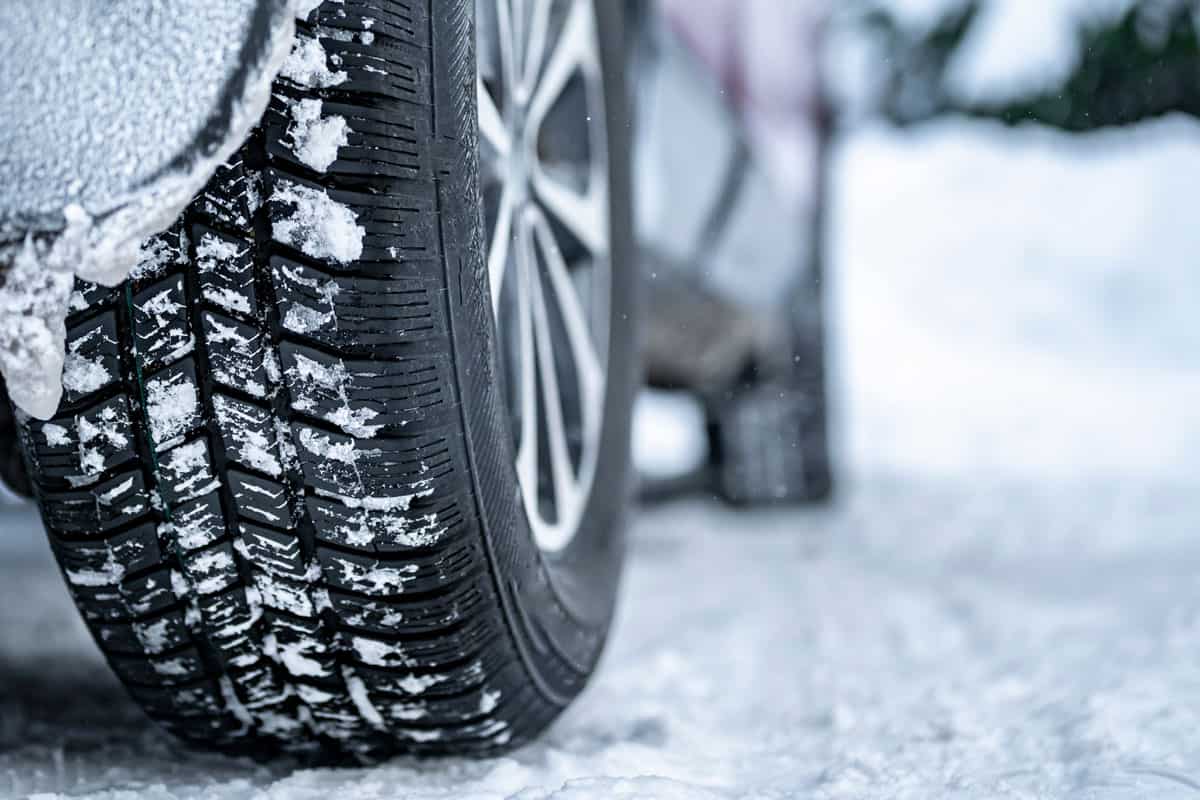
When properly stored, you should expect to get 3-4 seasons out of your tires. However, the lifespan can vary depending on the quality of the tire, how they are cared for, and the conditions they are driven in.
For example, a lower-quality tire that is driven on gravel roads is going to wear down faster. In addition, if your winter tires are stored in a warm environment, then the rubber will degrade faster.
Lastly, winter tires still need to be rotated periodically to ensure even wear. A general rule of thumb is to rotate your tires every 6,000-8,000 miles. If you didn't reach the mileage mark by the time winter ends, then have your winter tires rotated when they are put on again.
Final Thoughts
Whether or not you should get winter tires will depend on the climate you live in and your driving habits. If winter conditions are the norm, then having a narrow winter tire will keep you safe on the road. Always ask your tire specialist what they recommend for your vehicle and driving conditions.
Made it to the end? Here are other articles you might find helpful:
Are Bigger Tires Better For Snow And/Or Ice?
